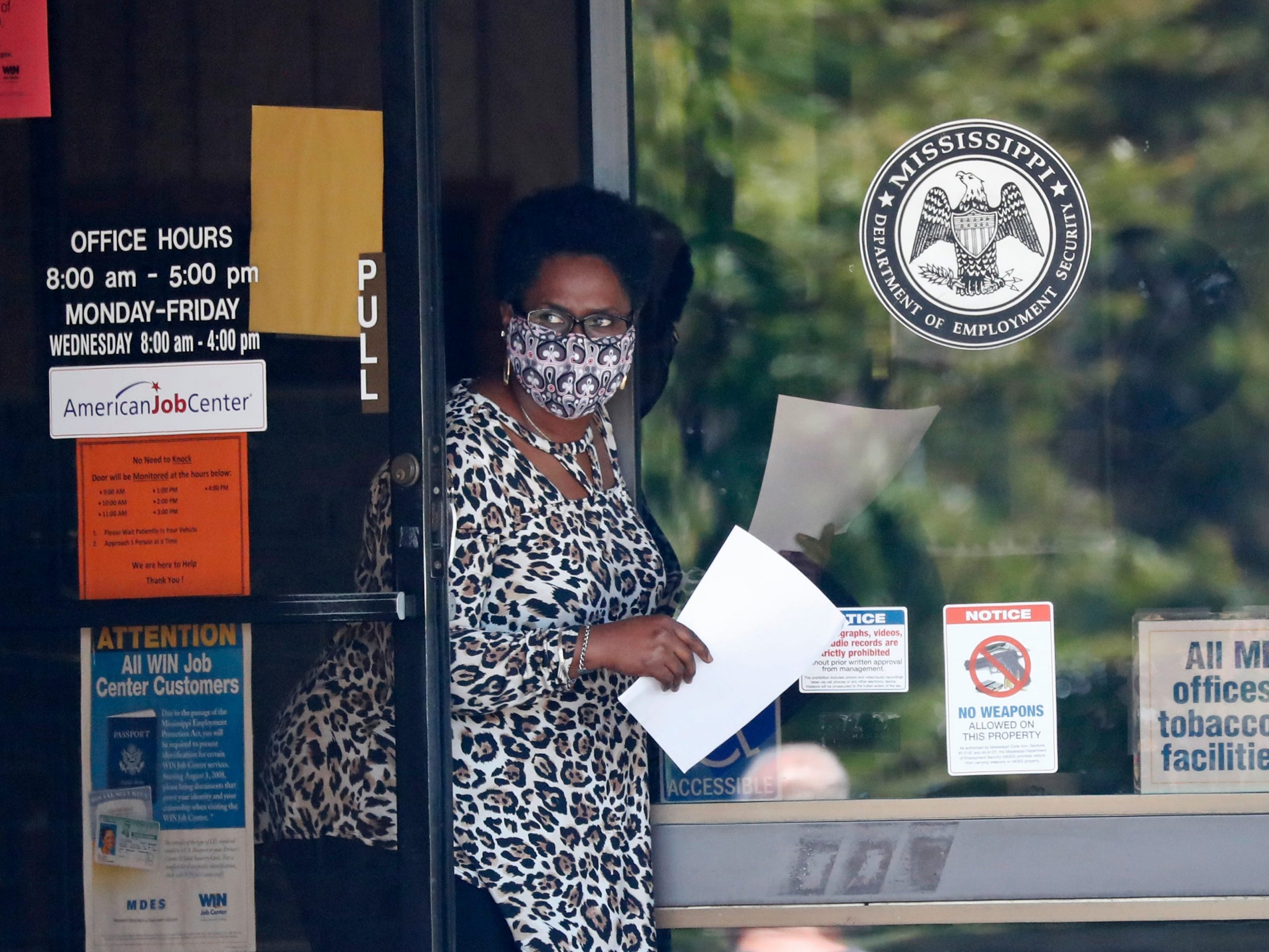
Associated Press
- Pew Research Center, a nonpartisan think tank, conducted a random online survey of 13,200 Americans in August 2020.
- Pew found that half of adults that lost a job due to the COVID-19 crisis haven’t returned to work, and 60% of those who took a pay cut in the beginning of the pandemic are still making less than they were before March.
- As of September 12, 12.6 million Americans are receiving unemployment benefits, and the unemployment rate is at 8.4%.
- Lower-income adults are less likely to have gone back to work, suggesting the economic recovery has primarily helped wealthy people — what some call a ‘K-shaped’ recession.
- Visit Business Insider’s homepage for more stories.
The onset of the coronavirus pandemic led to unprecedented job loss, and new data suggests the country hasn’t come close to recovering six months later.
The nonpartisan think tank Pew Research Center found that half of US adults that lost a job due to the COVID-19 crisis haven’t returned to work. Sixty percent of workers who reduced hours or took a paycut in the beginning of the pandemic are still making less than they were before March.
Pew conducted a random online survey of 13,200 Americans in August 2020.
The unemployment rate peaked at 14.7% in April after stay-at-home orders prompted sudden business closures. Six months later, unemployment remains high: as of September 12, 12.6 million Americans are receiving unemployment benefits, and the unemployment rate is at 8.4%. The unemployment rate had hit a 50-year low prior to the pandemic.
Low-wage workers are least likely to have gotten back to work. Fifty-six percent of lower-income adults who lost their job due to coronavirus are currently unemployed, compared to 42% of middle- and upper-income adults. (Pew defines lower income as families that make less than two-thirds of the median income among respondents.)
Of the families experiencing ongoing job loss or pay cuts: 46% said they used money from a savings or retirement account to pay their bills; 24% borrowed money from friends or family; and 20% said they have gotten food from a food bank.
Non-white and younger families were most likely to have experienced a layoff or taken a paycut since the outbreak, Pew found.
The data supports the theory that the economic recovery from the pandemic has been unequal: wealthy Americans have gotten jobs back, while sectors that employ low- to middle-wage earners continue to decline. For instance, less business travel during the pandemic has resulted in a steep decline in demand for office cleaning, hotel work, taxis, and restaurants — all sectors that employ mostly low-wage workers. One Harvard-based research group estimated that low-wage workers in rich neighborhoods experienced the biggest drop in employment due to COVID-19.
This has been called a "K-shaped" recession by some economists, with the different arms of the "K" representing the wealthy going in one direction, and everyone else in the other.
The US Chamber of Commerce has found, for instance, that the financial services sector, which employs primarily high-earning workers, has recovered 94% of its pre-pandemic employment.
Economists and politicians have referred to the unequal recovery as a "K-shaped" recession.

